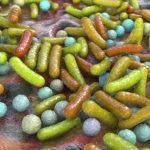By David Blyweiss, M.D., Advanced Natural Wellness
If you’re feeling stressed out these days, you’re certainly not alone. The worry over job losses, rising prices and a poor economy has everyone on edge. But when stress becomes chronic, it can make you sick.
Up to 80% of all doctor visits are a direct result of stress. Stress may weaken your immunity, cause sleep problems, upset your digestive tract, trigger headaches and pain, and even contribute to heart disease. I find it interesting the role stress plays in the illnesses I see in my patients.
But here’s the good news: you don’t need to turn to heavy-duty anti-anxiety drugs to help you cope with your anxious feelings. In fact, I’m going to tell you about several great ways to relieve stress that don’t involve a prescription.
When I’m stressed, I take rhodiola rosea for a few weeks. It’s an herb that helps the body respond to stress. It also guards against stress-induced health problems by preventing the breakdown of important brain chemicals. And, it’s great for burnout and for easing the exhaustion that can come from overwork.
One study of 161 students found that taking rhodiola boosted both concentration and energy levels. That helped them score better on their midterm exams.1
If stress has got you off your game, I recommend taking 100 to 300 mg of a standardized supplement one to three times per day.
Kava is another herb I prescribe to my patients when they’re under a lot of pressure and have trouble sleeping.
The medicinal compounds of the root—kavalactones—have relaxing properties that calm anxiety.2 So it’s no surprise that kava has been used as an herbal relaxant for more than 3,000 years in the Pacific Islands. Look for a product that contains 60 mg of kavalactones per serving and take 460 to 920 mg about 30 minutes before bedtime.
But, while kava can reduce muscle tension and create a sense of peacefulness, it’s wise to limit its use to a few times per month.
Are You Suffering From...
- Love handles and a pot belly
- Romance that isn't what it used to
- Forgetfulness and inattention
- Low (or no) strength and endurance
- A sex drive that's shifted into neutral...or worse
If so...you may have Mature Male Burnout. Click here to discover more about this unique condition and what you can do about it.
Another popular herb I use to treat stress is valerian, which is often used as a sleep aid. But taken in low doses, it can help ease anxiety.
In a recent study, scientists compared the effectiveness of 81 mg of valerian extract to 6.5 mg of Valium or a placebo. They found that both the valerian and Valium, but not the placebo, offered a significant reduction in the psychic symptoms of anxiety.
But unlike Valium, valerian isn’t habit forming.
When it comes to vitamins for stress, nothing beats the Bs. This family of vitamins includes thiamine, folic acid, riboflavin and niacin. B Vitamins are thought to play a role in the production of serotonin. They also play a role in the production of other brain chemicals involved in the stress response.
Studies have found that the levels of folate and vitamin B12 are below normal in depressed patients. But researchers have also discovered that taking 800 mcg of folic acid and 1 mg of vitamin B12 daily can reduce the ill effects of stress. And may even combat depression.
Vitamin C is another go-to nutrient during times of stress. Levels of this critical antioxdant are rapidly depleted when you are under pressure or feeling anxious. This is one reason people often get sick right after a stressful event. To prevent this, take 2,000 to 3,000 of vitamin C daily.
In today’s world, there’s no getting around stress.
Between work, family, social obligations and money worries, the demands of modern life can trigger stress that just doesn’t seem to go away. Before chronic stress makes you sick, nip it in the bud with one of these natural remedies. They can each, in their own way, help you survive times of stress in good health and humor.
References:
- Panossian A. Rosenroot (Rhodiola rosea): traditional use, chemical composition, pharmacology and clinical efficacy. Phytomedicine. 2010;17:481-493.
- Sarris J. The Kava Anxiety Depression Spectrum Study (KADSS): a randomized, placebo-controlled crossover trial using an aqueous extract of Piper methysticum. Psychopharmacology (Berl). 2009;205:399-407.
- Coppen A. Treatment of depression: time to consider folic acid and vitamin B12. Journal of Psychopharmacology. 2005; 19: 59-65.






